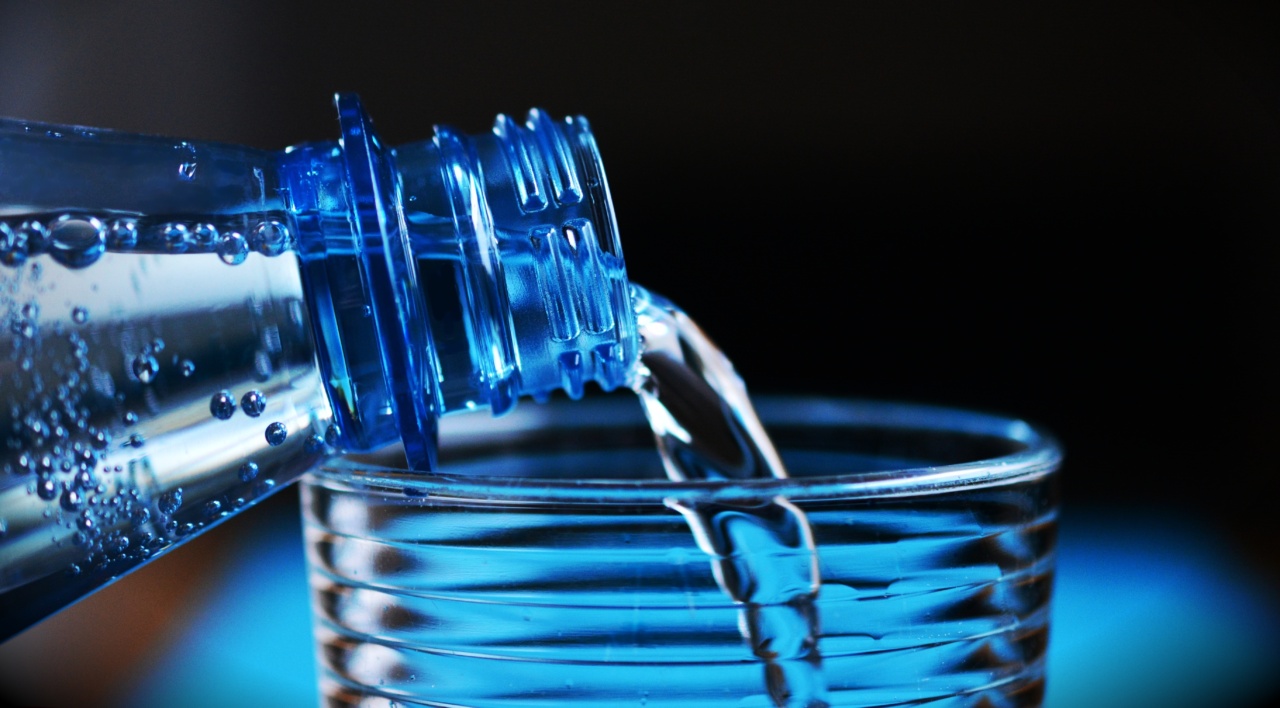Proper hydration is crucial for everyone, but it becomes even more important for expecting mothers. During pregnancy, a woman’s body goes through numerous changes, and adequate fluid intake is essential for both the mother and the developing baby.
In this article, we will explore the importance of hydration for pregnant women and discuss the recommended liquid intake to ensure a healthy pregnancy.
The Importance of Hydration during Pregnancy
Water is a vital component of our bodies, accounting for about 60% of our total weight. It serves many crucial functions, including regulating body temperature, aiding digestion, transporting nutrients, and removing waste.
During pregnancy, these functions become even more critical as the body supports the growth and development of the fetus.
Proper hydration is essential for expecting mothers as it helps:.
- Maintain Amniotic Fluid Levels: Amniotic fluid surrounds the baby in the womb and helps in the proper development of the baby’s lungs, digestion, and musculoskeletal system. Staying hydrated ensures an adequate supply of amniotic fluid, which is crucial for the baby’s well-being.
- Prevent Dehydration: Pregnancy can cause an increased risk of dehydration due to changes in hormone levels, increased blood volume, and the baby’s need for fluids. Dehydration can lead to complications such as urinary tract infections, preterm labor, or even birth defects. It is, therefore, imperative for expecting mothers to maintain proper hydration levels.
- Promote Digestion and Prevent Constipation: Pregnant women frequently experience digestive issues like constipation due to hormonal changes and the pressure exerted by the growing uterus on the intestines. Staying hydrated helps soften stools, making bowel movements easier and preventing constipation.
- Regulate Body Temperature: Pregnancy can often cause an increase in body temperature, making expecting mothers more susceptible to heatstroke or overheating. Sufficient fluid intake helps regulate body temperature and prevents any adverse effects.
- Prevent Swelling and Fluid Retention: Edema, or swelling in the feet, ankles, and hands, is a common pregnancy symptom. Proper hydration can help reduce fluid retention and alleviate swelling in the extremities.
Recommended Liquid Intake during Pregnancy
The general recommendation for daily water intake is about 8 cups, or 64 ounces. However, during pregnancy, women need to increase their fluid intake to meet the increased demands of their body and the growing baby.
The American Pregnancy Association suggests that pregnant women should aim for a total daily fluid intake of around 10 cups, or approximately 80 ounces. This includes fluids from both beverages and the water content found in food.
Factors Affecting Fluid Needs during Pregnancy
Several factors influence an expectant mother’s fluid requirements. These factors include:.
- Weather Conditions: Hot or humid weather can increase fluid loss through sweating, requiring additional fluid intake.
- Physical Activity: Pregnant women engaged in physical activities or exercises may require more fluids to compensate for the increased sweating and exertion.
- Health Conditions: Certain health conditions like gestational diabetes or preeclampsia may require adjustments in fluid intake. Consultation with a healthcare provider is essential in such cases.
- Individual Differences: Every woman is unique, and fluid needs may vary from person to person. It is important to listen to your body and adjust your fluid intake accordingly.
Choosing Healthy Hydration Options during Pregnancy
While water is the best choice for hydration during pregnancy, there are other healthy options to consider:.
- Fruit Infused Water: Adding slices of fruits like lemon, orange, or cucumber to water can provide a refreshing twist and added nutrients.
- Herbal Teas: Certain herbal teas, such as ginger or peppermint tea, can be safe and beneficial during pregnancy. It is important to check with your healthcare provider regarding suitable options.
- Fresh Fruit and Vegetable Juices: Juices made from fresh fruits and vegetables are a great way to stay hydrated while also obtaining essential vitamins and minerals.
- Low-Fat Milk: Milk is an excellent source of hydration and provides essential nutrients like calcium and protein. Opt for low-fat or skim milk for a healthier choice.
Signs of Dehydration during Pregnancy
It is vital for expecting mothers to be aware of the signs of dehydration to take prompt action. Some common signs of dehydration during pregnancy include:.
- Dark-colored urine or reduced urine output
- Feeling thirsty or dry mouth
- Dizziness or lightheadedness
- Fatigue or low energy levels
- Headaches
- Dry skin or lips
- Constipation
If any of these symptoms are experienced, it is important to increase fluid intake and seek medical advice if they persist.
Frequently Asked Questions (FAQs)
1. Can I drink caffeinated beverages during pregnancy?
Moderate consumption of caffeine is generally considered safe during pregnancy. However, excessive intake should be avoided as it can lead to increased heart rate, high blood pressure, and even miscarriage.
It is recommended to limit caffeine intake to 200 milligrams per day, equivalent to about one 12-ounce cup of coffee.
2. Are there any fluids to avoid during pregnancy?
Certain fluids should be avoided during pregnancy to ensure a healthy outcome. These include alcoholic beverages, unpasteurized juices or milk, and caffeinated beverages in excessive amounts.
It is important to discuss any specific concerns with your healthcare provider.
3. How can I track my fluid intake?
Keeping track of your fluid intake can be helpful to ensure you are meeting your daily requirements. You can use a water bottle with marked measurements or use a smartphone app designed for tracking water consumption.
These tools can assist you in monitoring your daily fluid intake.
Conclusion
Proper hydration plays a vital role in ensuring a healthy and uncomplicated pregnancy. Expecting mothers should aim to meet their daily fluid requirements to support their own well-being and the growth and development of their baby.
By incorporating a variety of healthy fluids into their diet and listening to their body’s cues, pregnant women can maintain optimal hydration levels throughout this special journey.



























